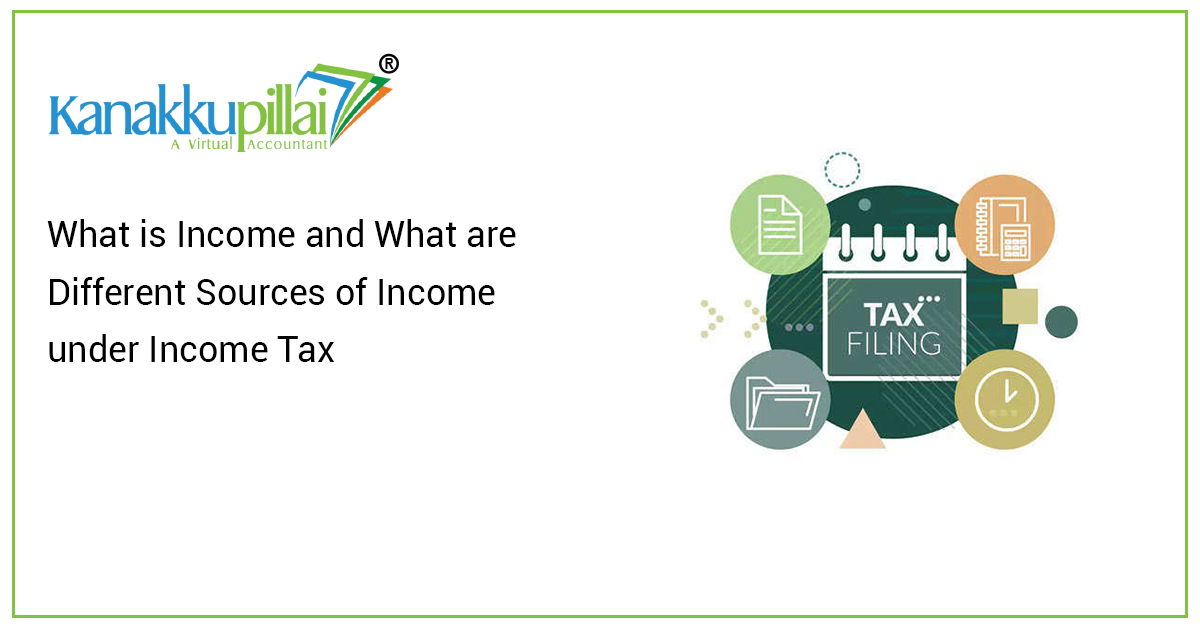Income, in general terms, can be understood as money that is received on a regular basis, especially for the work done or through the investments made. This may be received by an individual, a group, or a company for the work done by them or investing their money in. This may be received on a periodical basis, such as daily, weekly, monthly, or yearly basis. It will also include monetary and non-monetary values of allowances and perquisites. All this income earned shall be taxable under Income Tax unless and until the same has been exempted expressly by the Income Tax Act.
Income Includes
As per section 2(24) of the Income Tax Act, we can say that Income includes the following namely:
- Salary
- Profits and Gains from Business or Profession
- Dividends
- Voluntary contributions made by trusts and charitable institutions created wholly or partly for charitable or religious purposes.
- Perquisites
- Special or other allowances
- Any sum paid by the company to the assessee in the form of interest
- Capital gains
- Income from other sources.
Basic Features of Income
Income holds the following basic features:
- Income can be received on a periodical basis, say daily, weekly, monthly, or even a yearly basis.
- Income received by an individual can be taxed on an accrual or receipt basis.
- Income Tax Act does not provide any distinction between legal and illegal income.
- An assessee can receive income on a permanent or even temporary basis.
- Both incomes received on a lump sum or installment basis shall also be held liable for payment of tax.
- Income Tax Act includes revenue or capital gains and losses.
- In the case of the assessee who is an individual or HUF (Hindu Undivided Family), the gifts received during the year above INR 50,000 shall be considered as income and thereby taxable under the Income Tax Act.
Different Sources of Income As per Income Tax Act
The Income Tax Act, has divided the income earned by the assessee into different heads or sources of income, and this basically includes five, which are discussed below:
Income from Salary
Income from salary is the remuneration which is earned by the individual for rendering employment services to his employer, under any contracts signed by him. This shall not only include the monetary benefits earned by him as part of such employment but also the non-monetary benefits earned by him out of such employment.
Income from House Property
This includes the income earned by an assessee from house property in the form of rent. This can be anything which is appurtenant to the land, a house, a commercial building, or a shop. Income Tax does not distinguish between your commercial space or the house you would stay in or is for residential purposes and holds that the income, if any, earned from such house or commercial space should be taxed under this head. For this, you should be the owner of the house property, and an owner for this purpose is a legal owner for the objective of the income tax and also is someone who can make use of every right of the owner, and the right should not be used of the same on someone else’s behalf.
Income from Profits and Gains from Business or Profession
This earning is made by a person from a business or profession after considering the profit and loss account prepared by such a person. So, it basically is the profit earned from running the business or even the loss made by the assessee from the business or profession. And the income, despite being legal or illegal, shall be taxable under this head. The income or loss which is earned by the assessee in the previous year shall be filed on or before the 31st of July of an Assessment Year.
Income from Capital Gains
Profit or gain is earned by the assessee from the transferring of a capital asset that was held for investment. It can be gained from the transferring of a short-term or a long-term capital asset, and it is mandatory that for an income being taxed under the head income from capital gain, it should be earned from the transferring of a capital asset or the asset which falls under the definition of the capital asset as per the Income Tax Act. Certain examples of capital assets include the selling of land, shares, or other capital assets.
Income from Other Sources
This includes all other incomes which do not fall under any of the heads or sources which are specified above. Some of the examples which we can take for easily referring or understanding the same include, gift received, interest income earned on a savings account or FD account (Fixed Deposit account), dividend earned, and such other incomes, which fall out of the purview of above-specified sources of income.
Hence, we can now conclude that income earned by an individual or an assessee shall be taxed under any of the above heads or sources of income under the Income Tax Act during the assessment year on the basis of what was earned during the previous year.





